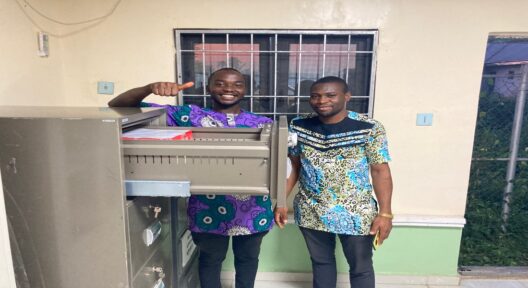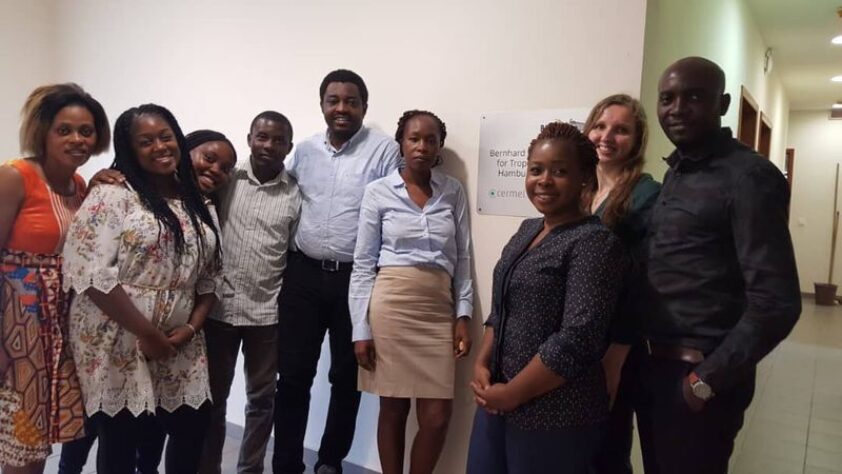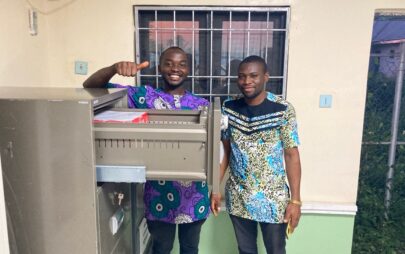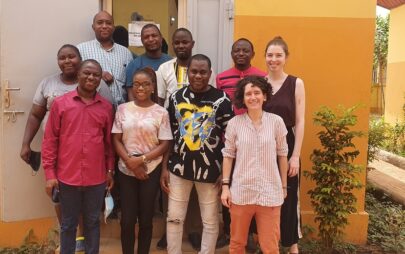Lassa-Nigeria
Capacity Building for Rapid Containment of Lassa Fever Outbreaks and Development of Medical Countermeasures in Nigeria

Short Description
The World Health Organization (WHO) has added Lassa fever to its Research and Development Blueprint priority disease list, which includes diseases with a potential to cause public health emergencies for which there are currently no vaccinations or safe treatment solutions. The Irrua Specialist Teaching Hospital in Irrua (ISTH), Edo State, Nigeria, witnesses Lassa fever outbreaks of public health concern every year. The case mortality of Lassa fever reaches up to 30%.
Module 1.3
The Bernhard Nocht Institute for Tropical Medicine (BNITM) aims at closing three important gaps with this project module:
- Supporting Lassa Fever outbreak control efforts, but also those of other diseases with epidemic potential in Nigeria by implementing a sequencing pipeline at the ISTH. This sequencing pipeline enables the monitoring of Lassa virus epidemiology by detecting the potential occurrence of novel Lassa virus strains or any increase in human-to-human transmission of the virus.
- Enabling timely sequencing of strains to ensure that diagnostic procedures are up to date and detecting all circulating strains
- Ensuring the detction of any unknown circulating pathogens through this plattform
Module 1.4
As a WHO Collaboration Center, the BNITM is working on medical countermeasures to contain Lassa fever outbreaks, as outlined in the WHO Research and Development Roadmap. The goal is the establishment of clinical sites and capacity building to conduct clinical trials, in which existing therapeutic options can be reviewed and new therapeutic candidates evaluated. Improving the treatment of Lassa fever in endemic regions will contribute to the reduction of mortality. In collaboration with the Irrua Specialist Teaching Hospital in Edo State, Nigeria, capacities are being built in Nigeria and clinical trials initiated.
Facts

Aims of the Project
Module 1.3
- Implementing a MinION sequencing pipeline at the ISTH to track Lassa viruses: expansion of the partner laboratory capacity of AfroLabNet module 1.1
- Training ISTH staff to independently operate the sequencing platform: onsite know-how
- Supporting the Ministry of Health (MoH), the Nigeria Center for Disease Control (NCDC) and the WHO in monitoring circulating Lassa viruses within the country
- Identifying other or new pathogens that are causing an outbreak
Module 1.4
Strengthening national capacities in outbreak and crisis situations by:
- Establishing a clinical study site
- Setting up a study centre at ISTH
- Training study personnel
- Realisation of collaborative clinical trials to improve the treatment of Lassa fever in endemic regions
In Cooperation with
- Irrua Specialist Teaching Hospital (ISTH), Nigeria
- Institute for Lassa Fever research and Control (ILFRC), Nigeria
- Federal Medical Center of Owo (FMCO), Nigeria
- Institut National de la Santé et de la Recherche Médicale (Inserm), France
- Alliance for International Medical Action (ALIMA), France
- Institute of Pharmacy, University of Hamburg, Germany
Last update: December 2022

